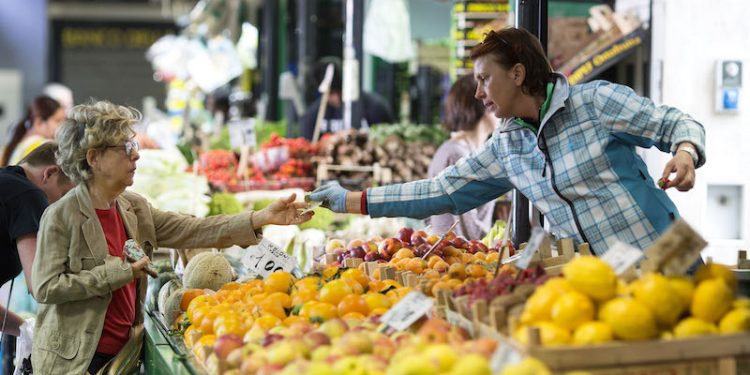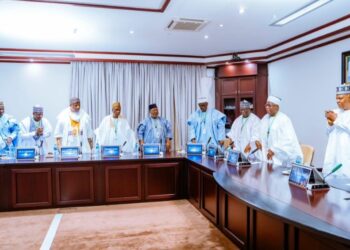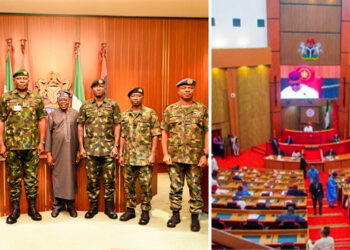A robust and well-integrated global agrifood system can help all countries withstand unprecedented challenges, as evidenced during the COVID-19 pandemic in early 2020 when global agrifood markets proved to be remarkably resilient.
“We are committed to working together”, wrote QU Dongyu, Director-General of the Food and Agriculture Organization of the United Nations (FAO) in the foreword to The State of Agricultural Commodity Markets 2022 (SOCO 2022), an FAO flagship report launched today.
The ongoing war in Ukraine, affecting a region of great importance for worldwide food security, is increasing uncertainty, and raising the risk of fragmenting global agrifood markets and magnifying hunger threats, which were already very high because of COVID-19, countries in conflict and humanitarian crises across the world.
The SOCO report, in its new edition, examines how mutually reinforcing multilateral and regional efforts can address the sustainable development challenges of today and those of the future. It does so with an eye to the global agrifood markets, agrifood systems resilience, economic growth, and environmental outcomes, cognizant that trade policies cannot be expected to fully address all the entailed trade-offs and require complementary measures.
In composing the SOCO report, FAO conducted modelling exercises to identify patterns between bilateral trade flows, relative prices and geographic barriers, and to identify key drivers of trade such as comparative advantage and trade costs. The report’s findings will be discussed at the upcoming 75th Session of the Committee on Commodity Problems, FAO’s longest-established technical committee, in July 2022.
Mapping the trade landscape
The globalization of agrifood markets has raised concerns about the impacts of trade on the environment and on societies.
Currently, the trade policy environment is characterized by slow progress in multilateral trade negotiations under the World Trade Organization (WTO) and a proliferation of deeper regional trade agreements that aim, in addition to market access, to promote convergence in domestic policies and regulations among their signatories.
The report aims to guide policy makers to find ways to ensure trade policies safeguard global food security and nutrition, respect the environment and bolster against shocks such as conflicts, pandemics and extreme weather.
Today, more countries trade with each other and the global agrifood market is more balanced than in 1995. Still, the trade geography mapped in SOCO 2022 highlights that although global wealth has grown, the share claimed by low-income countries has not changed much and the agricultural productivity gaps between countries can be enormous.
With the process of globalization losing steam since 2008, regional integration of agrifood trade has become more pronounced, often due to trade agreements, and promoted by factors such as geographic proximity and similar preferences. However, until recently, this has been less the case within sub-Saharan Africa.
One reason is that higher trade costs – related to tariffs, insurance, export and import procedures, time delays at borders and the need for compliance with numerous non-tariff measures and standards – can hinder integration and affect the structural transformation of economies. In low-income countries, trade costs can add up to 400 percent to a product’s final price, much more than for items traded between high-income countries.
In this context, the advent of the African Continental Free Trade Area (AfCFTA) will be important for economic growth and development in the region. Yet, complementary policies must be established in order to let comparative advantage play out without marginalizing smallholder farmers who are stymied in their ability to increase efficiency and compete in more open markets.
Another takeaway from the report is the value – in terms of reducing vulnerability to potential shocks – of diversifying trade partners, especially for countries with a high dependency on food imports.
Globally, agrifood trade can enhance the efficiency of land and water use, but it can also result in negative environmental impacts. Multilateral trade rules and the rising number of regional trade agreements allow for environment-related provisions, which, when legally binding, can help tackle the environmental impacts of trade.
Nevertheless, the report says that global environmental externalities, such as greenhouse gas emissions and climate change, are addressed most effectively through multilateral approaches with trade rules helping to expand the reach of policies that take into account the full costs of such impacts.
The SOCO report, published every two years, presents commodity market issues in an objective and accessible way to policymakers, commodity market observers and stakeholders interested in agricultural commodity market developments and their impacts on countries at different levels of economic development.


















